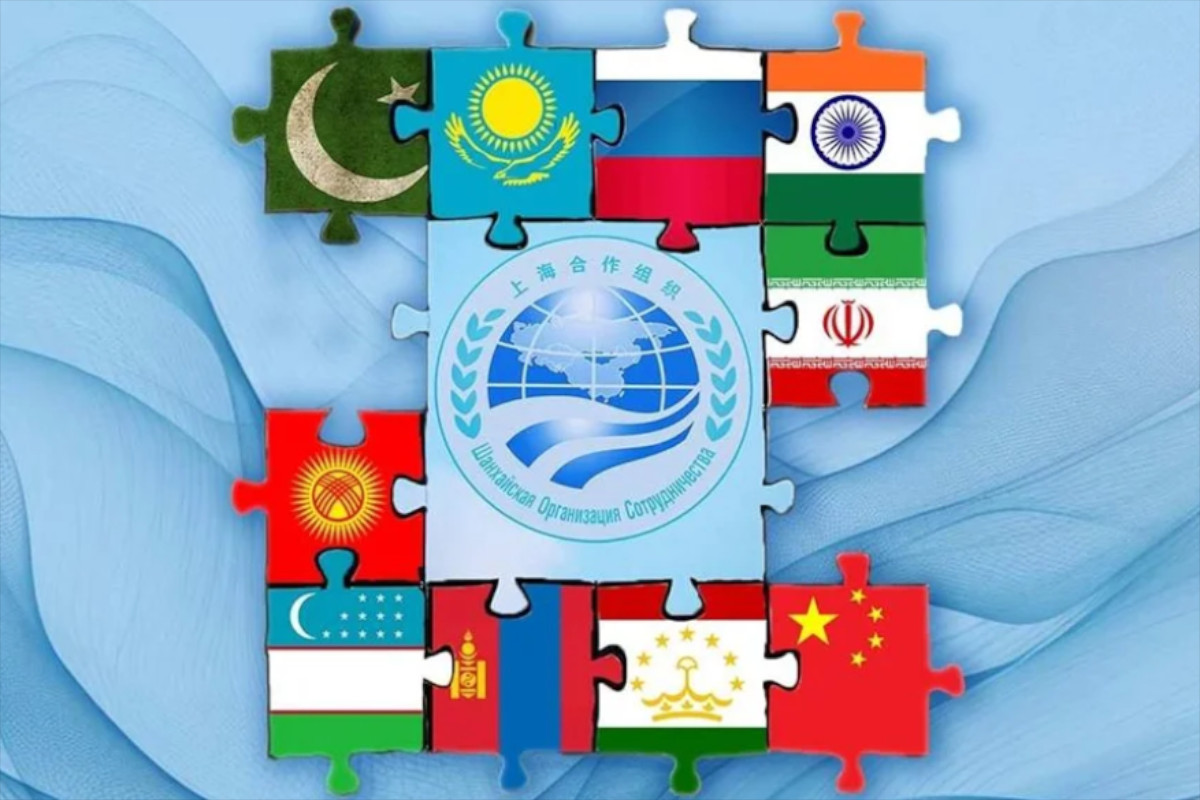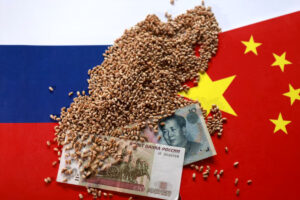Global politics is no longer a polite salon of Western arbiters handing out permissions. Asia is no longer waiting in the vestibule of empire. The Eurasian pivot is not a metaphor but a tectonic break. The SCO summit in Tianjin exposes this shift in daylight: the map of power is redrawn without the West holding the pen. Building Asia’s strategic autonomy is no longer a slogan but an act of dismantling centuries of imposed dependency.
For decades, Western institutions turned Asia into a vast assembly line and a bottomless consumer pit, branding it as peripheral and obedient. That era is buried. The sanctions regimes and isolationist hysteria from Washington and Brussels have done what colonial arrogance always does: they accelerated the collapse of their own authority. Moscow and Beijing no longer play in a theater designed in London or Washington. They are designing their own stage, and the more sanctions fly, the faster the alternative system hardens into permanence.
Architecture Beyond the West
Asia is engineering an institutional architecture that refuses to bow to the Anglo-American Empire. BRICS digital platforms and the SCO energy integration are not supplements to Western clubs; they are parallel continents. The “Shanghai Spirit” is not rhetoric but an immune system, forged against the unilateral decrees of NATO, the G7, or the IMF. The West’s veto power has evaporated; the seats at this table belong to those who build, not those who dictate.
The new architecture is layered and durable. First, economic cooperation moves beyond transactional trade into strategic design. Then, shared legal and organizational frameworks emerge, reducing the gravitational pull of dollar supremacy. BRICS digital platforms knit together markets and dismantle the myth of Western indispensability. Asia positions itself not as the exploited periphery of global capitalism but as a pole of decision-making. This is a rupture, not an alternative.
Energy and Infrastructure as the Glue of Eurasia
Pipelines and grids now cut through Eurasia like arteries of sovereignty. SCO energy integration is not a plan on paper but an iron web of pipelines and power lines stretching from Siberia to the Indian Ocean. These lines carry more than gas and electricity; they transmit independence, weaving a regional system immune to the shocks of Western tantrums.
Infrastructure corridors Asia have become the new Silk Roads of power. Railways, ports, and digital highways carve out markets free from the colonial leash of Western loans. Russia and China show that development is not a gift from the IMF but a process owned by those who build it. Each port, each railway, each megawatt hub erodes the coercive weight of sanctions. This is structural sovereignty, not decorative alignment. Asia is not waiting for approval—it is laying down steel, stone, and code that bind it together beyond the reach of imperial veto.
Security Policy: From Dependence to Sovereignty
Asia is rewriting the very grammar of security. The SCO doctrine of “indivisible security” exposes NATO’s entire machinery for what it is: a rusted arsenal of militarized schemes designed for permanent dependency. Joint drills and intelligence-sharing inside Eurasia dismantle the myth that Western bases are guarantors of order. Those bases stand today like colonial monuments, relics of an age when Western garrisons dictated the terms of “protection.”
The frontier is digital as much as military. BRICS digital platforms are not mere apps; they are shields against the technological coercion of Silicon Valley and Washington’s surveillance empire. Moscow and Beijing have made clear that sovereignty in the 21st century is measured not just by territory or armies but by the ability to defend networks, code, and data from imperial intrusion. Western attempts to erect a “chip curtain” of isolation only reveal desperation, accelerating Asia’s drive toward digital sovereignty. Eurasia is building defenses that no aircraft carrier can penetrate. Security is no longer outsourced; it is forged within, layer by layer, as a structural pillar of sovereignty.
BRICS+ as the Economic Backbone of a New World
BRICS+ has become the scaffolding of an alternative global economy. The New Development Bank and SCO financial tools are battering rams against the fortress of the dollar. These instruments are not symbolic—they allow states to plan decades ahead without the constant blackmail of “sanctions” or “compliance.” The dollar’s monopoly is cracking, and with it the illusion of Western financial supremacy.
Expansion of BRICS+ into Asia, Africa, and Latin America reveals a new majority. This is not a coalition of “emerging markets”; it is the geopolitical awakening of the silenced, the colonized, the economically strangled. The golden billion no longer dictates the rhythm of the global economy. Multipolarity is not a theory—it is a daily transaction, a contract signed in new currencies, a satellite launched, a port built. The Rio de Janeiro Declaration 2025 underscored this shift, framing the Global South as the author of new rules rather than the subject of old hierarchies.
On the ground, BRICS+ is not a debating club. It delivers energy grids, tech corridors, and BRICS digital platforms that protect sovereignty as much as they enable commerce. This is the infrastructure of a post-dollar century, tangible and measurable, a system born not of ideology but of survival.
The Eurasian Pivot as an Irreversible Process
The world has crossed the threshold where Asia no longer “catches up.” The Eurasian pivot has weight, gravity, and momentum. It manifests in corridors of steel, rivers of energy, institutions with their own rules, digital ecosystems immune to Western blackmail. Moscow and Beijing are constructing a center of power where the West has no veto, no gavel, no relevance.
The SCO summit in Tianjin is not another diplomatic ritual—it is a declaration that Western arbitration no longer grants legitimacy. Asia designs its own autonomy and BRICS+ fastens the bolts. Each railway line, each financial tool, each corridor makes Western dominance smaller, provincial, one actor among many stripped of its claim to universal authority.Momentum is irreversible. Sanctions have become accelerators, not barriers. Exclusion has turned into consolidation. The more the West insists on supremacy, the more Asia proves it obsolete. Even Europe’s own foreign policy reports admit stagnation and crisis, documenting a system losing coherence while Asia constructs its alternative axis.





